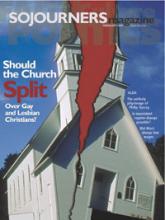When Captain America and the Crusade Against Evil came out in early 2003, America was debating going to war in Iraq. During these months of war and its aftermath, hardly a week goes by without some event that reflects the confusing interplay of religious language and national mythology. In May, George Bush used Isaiahs messianic language to proclaim victory; more recently came the uproar over Gen. William Boykins assertions that our Christian army is doing battle with Satan.
To understand whats really going on, the fervent yet scholarly work of Jewett and Lawrence is helpfuland timely. Dont let the comic-book character put you off. Captain America, born in 1941, is simply a symbol for a much more serious themethe political theology of zealous nationalism. More than 30 years ago, biblical scholar Jewett began using Captain America to personify the "myth of the American superhero"a lone crusader who intervenes dramatically to purge society of threatening evils. To achieve his purpose, however, the superhero must ignore democratic processes and the existing legal order to eliminate the source of evil. The troubling undertone is that ordinary citizens and normal democratic procedures are incapable of responding to the threat.
After Jewett first exposed zealous nationalism in The Captain America Complex in 1973, he collaborated with Lawrence in a whimsical study of superheroes in popular culture, The American Monomyth (1977). More recently they updated these themes in The Myth of the American Superhero (2002), followed now by this major work that combines biblical scholarship with historical and political analysis to interpret the ideologies behind the headlines.
Read the Full Article
